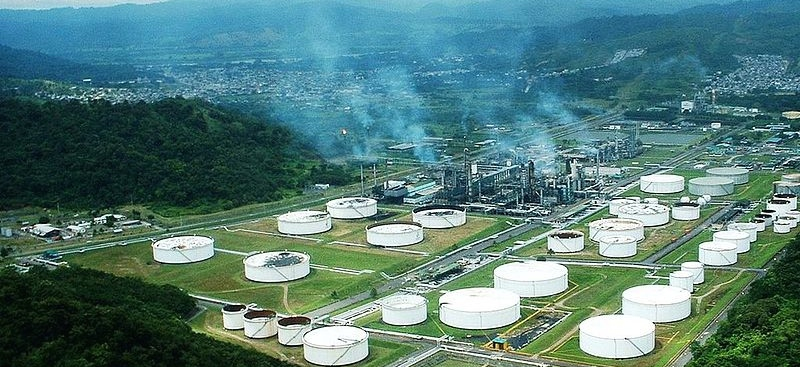The views and opinions expressed on the website are those of the authors and do not necessarily reflect the views or opinions of Niagara Foundation, its staff, other authors, members, partners, or sponsors.
By Alexandra Turcios
Center for Public & Global Affairs Intern
August 1, 2015
Ecuador is one of the most biodiverse countries in the world, divided into four distinct regions: The Galapagos Islands, the Amazon Rainforest (El Oriente), Coastal Lowlands (La Costa), and the Andean Highlands (La Sierra), which traverses the western coastal lowlands and the Amazonian jungles to the east. Ecuador is blessed with an abundance of timber, fish, and hydropower. Such a diverse landscape is fertile ground for resource conflict, particularly with regard to petroleum. While Ecuador is home to pristine nature, it houses immense social conflict surrounding extractive industries and environmentalism.
Oil is Ecuador’s major export, constituting nearly half of the government’s revenue. The mining practices that accompany hydrocarbon production occurs on territory claimed by indigenous peoples, but oil companies are increasingly laying claim to these same territories. Not only are monopolized companies taking the wealth from impoverished communities, they are contaminating the once fertile soil in the agricultural-based economy of the indigenous. These malpractices have galvanized an indigenous rights movement while paving a political voice that had not existed before. Now, indigenous communities are lobbying the government for equal representation, a quid pro quo for public goods provision.
Historically, revenue streams generated from extractive resources do not recirculate back into the indigenous communities that resources originate from — and this has been the source of heightened antagonism between central governments, small tribes, and farm holders.
Ecuadorian President and University of Illinois alum, Rafael Correa, is the vanguard of a shifting political mentality in resource-rich economies: from being an exploitative industry, to one that weaves a moral fiber into inequitable sects of the country. He has implemented social capital into the most impoverished areas by developing infrastructure and well-made roads. The infrastructure goes deep into the valleys and ascends into the small, mountainous communities that would have an otherwise stagnant economy. Correa lived in an indigenous community and learned Quechua, giving him leverage in understanding the importance of supplying 35% of Ecuador’s indigenous population with infrastructure that supports micro-enterprises.
Currently, President Correa holds an overwhelming majority in the Ecuadorian government with a 60% approval rate. During my travels to the Andean region of Ecuador, I was able to experience Mr. Correa en route to a small community to open a new road. Hundreds of thousands of Ecuadorians lined the highway to get a glimpse of the modern day Hugo Chávez. His concerted efforts to bridge the gap between rich and poor has rendered him one of the most popular leaders in Latin America. But even with increased public goods provision, problems loom in the oil-dependent country.
The oil industry is crucial to Ecuador’s economy and it may cost the Yasuní seven billion worth of rainforest oil that keep multinational corporations satiated. President Correa is an adamant advocate for the preservation of the Amazon. He pioneered the Yasuní Initiative, an effort to collect donations from the Global North to keep oil in the ground at the National Park. The initiative failed, having only collected a few hundred million. Recently, the Ecuadorian Government announced a new round of oil concessions covering three million hectares of indigenous peoples’ land and companies may start extracting under the biodiversity reserve as early as 2016.
Combatting government and corporate factions in resource-rich countries are becoming a salient discussion in Latin America. Ecuador has set the precedent by spearheading an indigenous rights movement in hopes of providing a platform for negotiating with government officials and preserving the land they occupy. This is a transformative time in Latin American history with regard to growing indigenous rights. My trip to Ecuador was supplemented by the fact that I was able to interact with some indigenous peoples (through a translator who knew Quechua) in an attempt to empathize with those seeking corporate emancipation.

